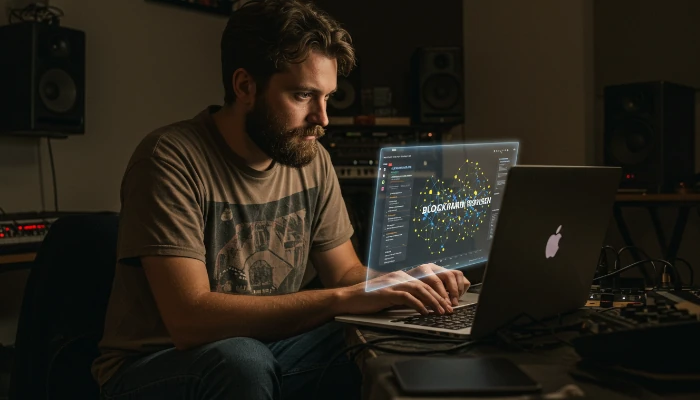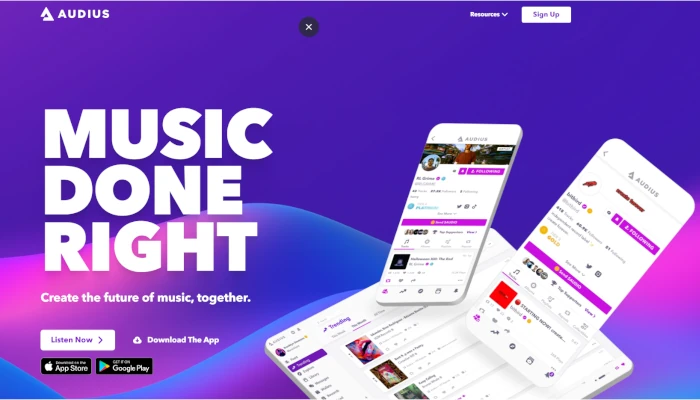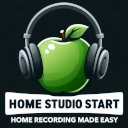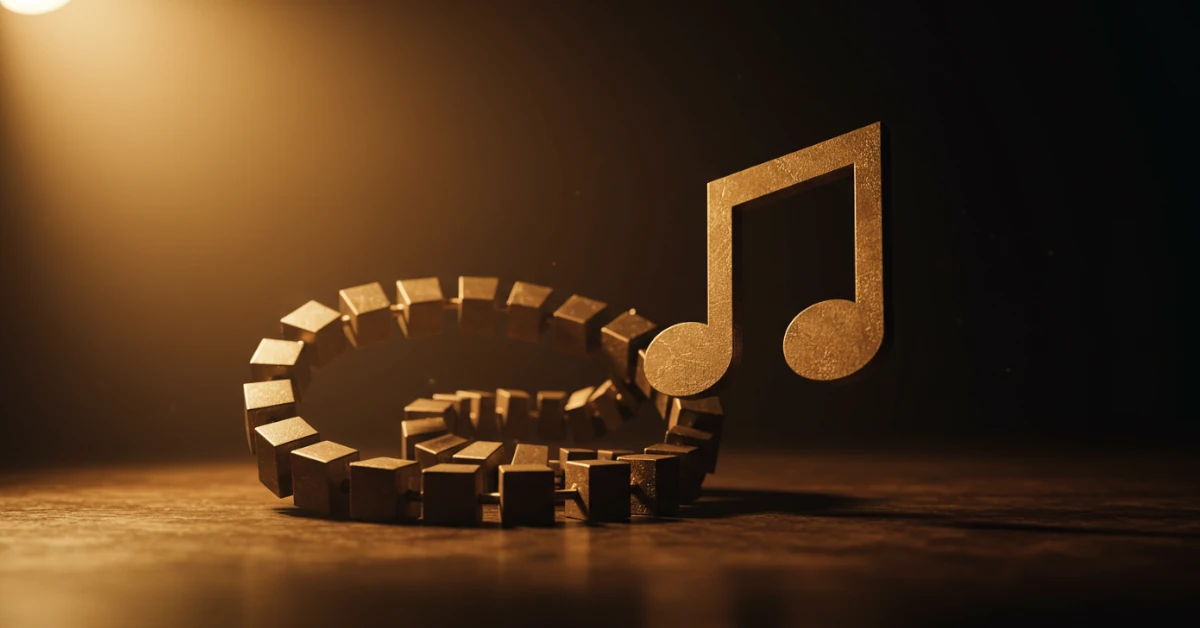The music industry is on the cusp of a revolution, and blockchain technology is leading the charge! This article explores how blockchain is empowering musicians and reshaping the landscape of music ownership and royalties. First, we’ll dive into how blockchain enables a new era of ownership, giving artists direct control over their music and earnings, bypassing traditional gatekeepers. Next, we’ll demystify how blockchain can revolutionize music royalties, ensuring fair and transparent compensation for every play. From there, we’ll explore exciting use cases of blockchain in the music industry, from direct fan engagement to fractional ownership of music rights. Finally, we’ll provide a practical guide on getting started with blockchain, highlighting the tools and resources available for musicians to navigate this exciting new frontier.
Get ready to unlock the potential of blockchain and transform your music career!
How Blockchain Empowers Musicians: A New Era of Ownership
Blockchain for musicians is more than just buzz; it’s a real game-changer! Imagine a world where artists directly control their music and earnings. That’s the promise of blockchain. Platforms like Audius are already letting musicians upload music and get paid in cryptocurrency directly by fans, cutting out traditional labels and distributors. Think of “Sarah,” an indie artist who used Audius to release her EP. She earned 70% more than she would have through a traditional distributor because she kept a larger share of the revenue. Another cool thing is NFTs (Non-Fungible Tokens). Musicians are selling unique songs, artwork, or even experiences as NFTs, creating new income streams and engaging directly with their fans. For example, Kings of Leon released their album as an NFT, including special perks for buyers.
Want to get started? Explore platforms like Catalog or Sound.xyz, which focus on music NFTs. You can also look into decentralized autonomous organizations (DAOs) for musicians, which allow artists to collectively manage resources and make decisions. Dive in, experiment, and see how blockchain can revolutionize your music career! If you’re setting up a home studio, this could be a game changer.
Blockchain and Music Royalties: Ensuring Fair Compensation

Tired of opaque royalty statements and delayed payments? Blockchain for musicians offers a transparent and efficient solution! Imagine a system where every time your song is played, the payment is automatically and instantly distributed to all rights holders – that’s the potential of blockchain. Platforms like Vezt are experimenting with allowing fans to invest in songs and receive a portion of the royalties, creating a direct link between artists and their supporters. Let’s say “The Beatsmiths” collaborate on a track. Using a blockchain-based system, the royalty split (songwriter, producer, vocalist) is coded into the smart contract.
Every stream automatically distributes the correct percentage to each collaborator, eliminating disputes. To explore this, research companies like Ujo Music (though now part of ConsenSys, the underlying tech is still relevant). Also, look into tools that help track your music usage across different platforms. While a fully integrated blockchain royalty system is still developing, understanding smart contracts and exploring platforms that offer greater transparency in tracking and distributing royalties is a crucial first step. Consider using ISRC codes diligently to help with tracking, and document all agreements clearly. Blockchain empowers you to take control of your earnings! If you’re looking to make money as a home recording artist, this is a must.
Use Cases: Blockchain Applications Transforming the Music Industry
Blockchain for musicians is unlocking exciting possibilities! Beyond just royalties, it’s reshaping how music is created, distributed, and experienced. One key use case is direct fan engagement. Platforms like Patreon are integrating blockchain elements to offer exclusive content, early access, and even governance rights to fans who hold specific tokens. Think of it as a digital fan club with real ownership. Another is fractional ownership of music rights. Companies are exploring ways to tokenize songs, allowing fans to invest in a portion of the master recording and share in the royalties. Imagine a band, “Cosmic Echo,” funding their next album by selling tokens representing a percentage of future royalties – fans become investors! Plus, blockchain can improve music rights management.
By creating a transparent and immutable ledger of ownership, it becomes easier to track usage and prevent copyright infringement.
Actionable tip: Start researching platforms that are experimenting with blockchain technology. Follow artists who are using NFTs and DAOs to engage with their fans. Educate yourself on smart contracts and how they can automate royalty payments. Explore decentralized streaming services like Opus. The future of the music industry is decentralized, and understanding these use cases is crucial for any musician looking to stay ahead of the curve. It’s a great way to master the business of music.
Getting Started with Blockchain for Musicians: Tools and Resources

Ready to dive into blockchain for musicians? Don’t be intimidated! Start small and explore the available tools. First, create a cryptocurrency wallet (like MetaMask or Trust Wallet) to manage your digital assets. Next, explore platforms like Audius for direct music distribution and NFT marketplaces like OpenSea or Zora to sell unique digital creations. Many artists are using Discord servers to build communities around their NFT releases, offering exclusive content and fostering direct engagement. For example, musician “Synthia” uses her Discord to announce NFT drops and host listening parties for token holders.
Resources like the Water & Music community provide valuable insights and networking opportunities. Consider taking online courses on blockchain basics and smart contracts (Coursera and Udemy offer options).
Actionable tip: Start by creating a simple NFT – a piece of album art or a short audio clip – and list it on a marketplace. This hands-on experience will help you understand the process. Also, research existing music-focused DAOs to see how they operate.
Remember, the blockchain space is constantly evolving, so continuous learning is key. Don’t be afraid to experiment and connect with other musicians who are exploring this technology! You might even find some top sample libraries there!
Blockchain: The Future Sound of Music
From empowering artists with direct control over their music and earnings through platforms like Audius to revolutionizing royalty distribution with transparent smart contracts, blockchain technology is poised to reshape the music industry. We’ve explored how NFTs create new revenue streams and foster deeper fan engagement, and how DAOs offer collaborative governance models for musicians. Armed with new tools and resources, the future of music is in your hands. It’s time to explore, experiment, and discover how blockchain can amplify your creative vision and secure your financial future in the music world. What are you waiting for? Start exploring the possibilities today!

